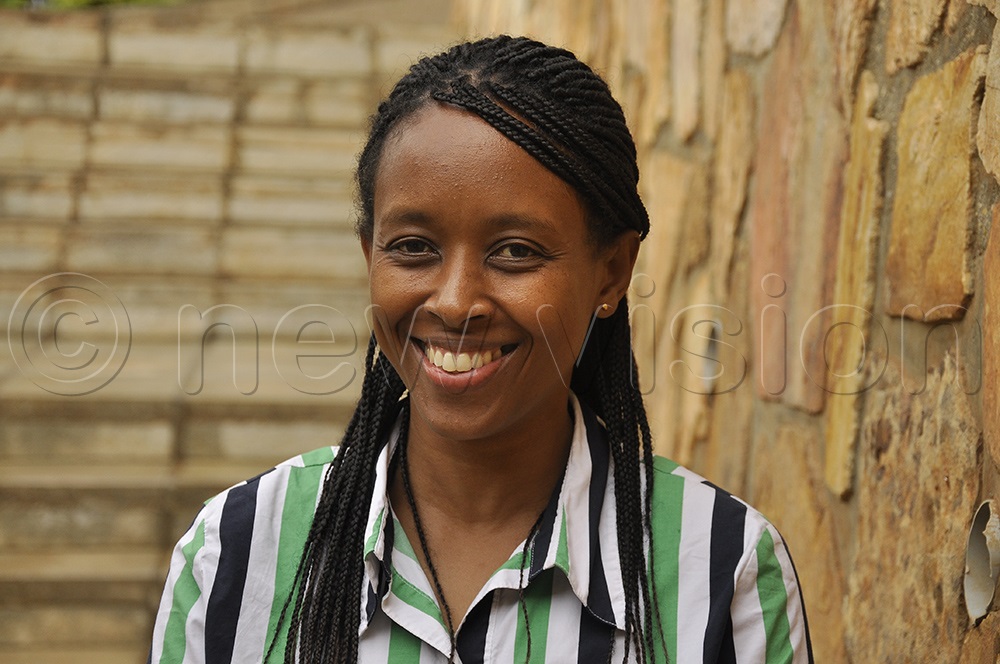Invest adequately in gender-based violence victims' shelters, civil society tells govt
“We appeal to the Government to increase investment in shelters by budgeting for their construction, equipment, staffing and maintenance. The districts should have budgets for these shelters because they are important at that time when this survivor who has spoken out is homeless".
Journalists attending the training at the Bahai conference centre in Kisaasi, Kampala city on Wednesday (Photo by Dedan Kimathi)
__________________
The civil society has implored the Government to invest adequate funds in the establishment of care homes for victims of Gender-Based Violence (GBV).
“We appeal to the Government to increase investment in shelters by budgeting for their construction, equipment, staffing and maintenance. The districts should have budgets for these shelters because they are important at that time when this survivor who has spoken out is homeless."
A shelter is the first safe point for victims fleeing GBV, offering a temporary home-like environment with beds, electricity, essential amenities and trained staff who provide specialised psycho-social support among a range of other services before survivors can transition back to normal life.
Carol Natukunda, a communications and media co-ordinator at International Justice MIission (IJM), made the appeal on November 19, 2025, on the sidelines of a journalist training at the Bahai conference centre in Kisaasi, Kampala city.
Her words come ahead of the Global 16 Days against GBV campaign, which shall run from November 25 to December 10 under the theme: End Digital Violence Against All Women and Girls.
Carol Natukunda, a communications and media co-ordinator at International Justice Mission (IJM). (Photo by Dedan Kimathi)
The 16 Days of Activism Campaign against GBV is a global campaign that was inaugurated in 1991, spearheaded by the Women's Global Leadership Institute (WGLI), a programme at Rutgers University in New Jersey USA, which trains women in leadership based on global good practice.
The campaign has since grown globally and is marked with a wide range of activities organised by governments and stakeholders. In 2008, another initiative, ‘UNITE! End Violence against Women by 2O30’' was launched by the United Nations to reinforce the 16 Days of Activism campaign.
The UNITE campaign calls for global actions to increase awareness, galvanise advocacy efforts, and share knowledge and innovative measures to address GBV.
“For a poor woman, they don’t have a means to survive. Imagine the person you are reporting is the breadwinner. He is the one paying school fees, buying food and paying rent. When you report them, they cut you off. So, for a woman who has decided to speak and maybe move with her little children, where can they go to unless they have a supportive family?” Natukunda said.
“It is also going to be hard for that woman to leave an abusive home because they don’t have anywhere to go to. Ideally, the gender ministry and they have a social welfare department, but the Government investment right now is low in shelters or non-existent. Shelters are mostly supported by Non-Governmental Organisations (NGOs). So, when they close down due to funding, then the shelters die,” Natukunda added.
As of the 2021/22 financial year, Uganda had 18 shelters across the country; four in the central region, eight in the eastern region, four in the northern region, one in Karamoja, and one in the western region, according to the gender ministry (MGLSD) statistical abstract.
As of last year, there were 21 functional GBV shelters countrywide, according to a statement by State Minister for Gender and Culture, Peace Regis Mutuuzo, submitted to Parliament on November 25 during the commemoration of the 16 Days of Activism Against GBV.
Baseline study
The IJM baseline study findings on Violence Against Women and Children (VAWC) released in August this year found out that 1,224 out of 2,225 (55 per cent) ever partnered women experienced Intimate Partner Violence (IPV) either sexual or physical in their lifetime. While 30.3 per cent experienced IPV in the last 12 months.
While 660 out of 1,126 children experienced sexual abuse in their lifetime with close relatives and friends found to be the most common perpetrators. Also, Sexual Violence Against Children (SVAC) was found to be three times more prevalent in girls as 565 out of 733 (77 per cent) than boys 95 out of 393 (24 per cent) and the most affected children older than 15 years.
Technological facilitated GBV
One of the recent challenges that has reared its ugly head in Uganda is Technological Facilitated Gender Based Violence (TFGBV), which is targeted and gendered in nature. It encompasses online harassment, stalking, disinformation, deepfakes and the non-consensual sharing of intimate images.
According to Penny Suzan Igaga, an expert with the Centre for Domestic Violence Prevention (CEDOVIP), this type of abuse often begins online and can at time escalate to offline violence.